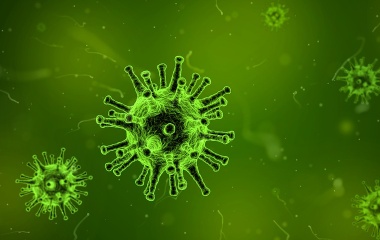
Here is a great trivia question to try on a friend. Who was Noach’s wife? What was Abraham’s mother’s name? Don’t feel bad if you don’t know. While the Torah tells us whom Eisav married, the Torah is silent regarding the wife of Noach. While we know who the mother of Amalek is, we are left to guess whom the mother of Abraham might be.
The Torah is not a history book, nor a biography of our founding fathers (or mothers). It reveals only that which is necessary for us to know – that which we need to grow morally. This is what makes the Torah's long lists of names of people whom we encounter only once hard to understand and often leaves us wondering why we are told X but not Y. However, as the Torah is a Divine work, we must search to understand why the seemingly irrelevant is included, but that which we might consider important is omitted.
A quick look at the first 11 chapters of the Bible – covering 20 of the 26 generations which are the subject matter of the Torah –reveals that the Torah makes mention of only three women: Chava, for reasons that need little explanation; and Ada and Tzeelah, the wives of Lemech.
In the ancient world of the Bible, women were often considered more objects than people; hence, the b’nei elohim, who “took for themselves women, whomever they wished” (Breisheet 6:2). Taken with the long lists of (male) names of the first 20 generations – and little else – the Torah seems to be indicating that in pre-Abrahamic days, women had two roles – sexual pleasure for men and having children. No wonder Rashi (Breisheet 4:11) notes that Lemech "needed" two wives – one for each of the above-noted roles.
It is only with the beginning of the Jewish nation that woman play a central role. G-d’s covenant is with Abraham and Sarah, and once Sarah dies and is buried, G-d no longer appears to Abraham. And with the exception of a few verses surrounding Abraham’s death, we are told nothing of Abraham’s remaining 38 years. In fact, one could argue that the role of the matriarchs was more crucial than the patriarchs. G-d told Abraham that “all that Sarah says to you, listen to her voice” (Breisheet 21:12), for a reason. And where would we be had Rivka not “outsmarted” Yitzchak? While Noach was a “righteous and pure man”, he was not quite up to the task of being the first Jew, one indication of such being by the anonymity of his wife and daughters-in-law.
We can now readily understand why the Torah does not tell us the name of Noach’s wife, or even Abraham’s mother. Living in a pre-covenantal world, they were destined to remain anonymous and under-appreciated. In the same vein, while we are told how Yitzchak met Rivka, Yaakov met Rachel and Moshe met Tziporah, how Terach met Mrs. Terach is of little importance—we cannot expect the Torah to recount the courtship of an idolater.
Yet our Sages were not content to “accept” the Torah at face value and sought to reveal that which is hidden[1]. “Rav Chanan bar Rava further stated in the name of Rav: The mother of Abraham [was] Amathlai, the daughter of Karnebo; the mother of Haman was Amathlai, the daughter of Orabti”[2] (Bava Batra 91a).
To this the Gemara responds, “What difference does it make?” or, to put it more colloquially, who cares? What moral lesson can be learned? If the Torah itself does not care who Abraham's mother was, why should we?
The Gemara’s answer is both cryptic and revealing. “To answer the heretics.” This may explain why, in the context of the Torah, Abraham’s mother can remain anonymous; but the rabbis, facing the taunts of heretics, had to identify her[3]. Left unexplained is who these heretics are and what exactly their heresy might be. One fascinating explanation I came across, in the name of Rav Yaakov Kamenetsky zt"l, is that this was in response to rise of Christianity, with its view of the virgin birth. To counter the view that one can have no mother and a divine father, the Sages insisted on identifying Abraham’s mother[4],[5].
I would like to suggest a different reason, one that focuses on the Gemara’s seemingly strange linking of the mothers of Abraham and Haman. Surprisingly (though not when we understand Aggadot non-literally) they share the same name, Amathlai. One can be a Haman and one can be an Abraham – the choice is ours. One can have the “same” mother, yet one “child” will follow in the path of an Abraham, and another on a much different path. And no choice is final. Our Sages teach that Yochanan the High Priest served with great dedication for 80 years and then became a heretic (Brachot 29a), and that while Haman himself never repented, his grandchildren learned Torah in B’nai Brak (Gittin 57b).
The heretics of the day argued that man is creature of fate. He lacks free choice and is forced to act according to his genetic make-up. Abraham, they argued, inherited his qualities from his mother. To this, the Gemara says his mother was so unimportant and non-influential that she is not even mentioned in the Torah. The sages will tell you who she is…she is the same mother than can beget a Haman.
Abraham, the founding father of our people, demonstrated the fundamental principle of our moral belief system, that one has free choice. Regardless of whom one’s parents may be, one can still be an Avraham Avinu.
[1] The ambivalence of revealing that which the Torah has hidden can be seen in the response to Rabbi Akiva’s claim that the mekoshesh eitzeem, the gatherer of wood, put to death for violating Shabbat was Tzilafchad (which sheds an interesting light on the request of his daughters for a share in the land). Rav Yehuda ben Betirah said to him, “Akiva! In either case you will have to give an account [for your statement]: if you are right, the Torah shielded him, while you reveal him; and if not, you cast a stigma upon a righteous man'” (Shabbat 96b).
[2] Nonetheless, I am at a loss to explain the comment of the Rashbam that “since the mothers of Yitzchak and Yaakov are mentioned [in the Torah] we must know the mother of Abraham.” Why must we? Clearly the Torah itself thought otherwise. And for good reason. The mothers of Yitzchak and Yaakov were our imahot, whereas the mother of Abraham—well, the Torah does not even deem it necessary to let us know who she is.
[3] The idea that the Torah is to be explained anew in different time periods is a powerful one that we will, please G-d, address in a future post.
[4] Whether it was the censors who removed the full explanation, or whether it was an instance of self-censorship by the Jews who only cryptically alluded to it, I do not know.
[5] It may be that this is the reason the Torah highlights the genealogy of Moshe Rabbeinu. Apparently, this was not enough to satisfy all heretics. It is the founder of their religion who they claim had no mother and thus, our founder must be born by natural means.



